Strictly Personal
Karamoja residents would like boreholes more than ‘mabati’, By Joachim Buwembo
Published
1 year agoon
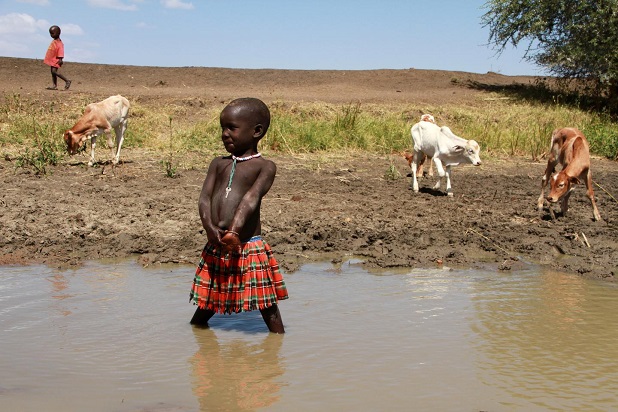
A serving minister in the Uganda government spent the long Easter weekend in prison. The honourable Dr. Maria Goretti Kitutu was remanded on account of her alleged involvement in the diversion of roofing iron sheets (mabati) meant for the country’s poorest region of Karamoja, where they were to be given to repentant cattle rustlers emerging from the bush to start a settled life in the communities they had been terrorising.
But when dealing with a public service riddled with corruption, things rarely go according to the script. Someone once said that comparing politicians to fishermen is unfair because fishermen waste their own money, unlike politicians who waste ours.
The jailing of the minister was an apparent start of a crackdown on Uganda’s “fishermen,” a dozen or so of whom are ministers in government but haven’t yet learnt how politicians safely access public wealth.
Fishermen
The reference to new ministers as fishermen were coined by President Yoweri Museveni himself when, upon being re-elected in 2021, like Jesus, who picked common fishermen for his disciples instead of scholars and priests, he appointed several unexpected persons to high positions in his Cabinet. Unexpected because these were not the polished, sophisticated elite you expect to find at the helm governing the country.
True, they all had a university education, but this is no longer a novelty in the 21st century. Museveni’s “fishermen” are really normal people (mostly women) raised like most of us in the lower strata of society, speaking English in their mother tongue accent like most of us and still having some rough edges that need some filing before they can mingle easily in high society.
The “fishermen” were particularly deemed fit for the appointments because the five-year National Development Plan (2021-26) is really grassroots-based, and their being “of the common people” made them NDP’s suitable implementers. We had all thought, and rightly so, that the fishermen wouldn’t intentionally waste our money as typical politicians do. But it appears Museveni’s fishermen were not comprehensively warned about the snake pit of public service that they had entered. They climbed down the pit, oblivious to the silent cobras, mambas, and vipers crawling in the dark.
Cheap mabati bait
So, they apparently fell for the appropriate bait of cheap mabati that were, according to most of the implicated, just delivered to their homes, all the paperwork done by assistants. Had they been baited with a million dollars, our lovable fishermen would probably have screamed and reported their temptations to their appointing authority, and we wouldn’t be having this mess. But mabati were within their realm, so they took them and donated them to village schools in their constituencies, hoping to smoothen their re-election to parliament in 2026.
The corruption entrenched in the public service possibly consumes a quarter of the national annual budget, according to the Inspector General of Government. In reality, this is half the country’s tax revenue, since nearly half of the budget constitutes debt (borrowing and servicing). Conspiracy theorists argue that if you are among the captains in charge of siphoning a quarter of the budget (Ush10 trillion — $2.7 billion), you don’t want some fishermen unschooled in these things to be your bosses and asking you funny questions, moreover rather too loudly.
Common fishing identity
The fishermen, incidentally, include the Vice-President, the Prime Minister, the Minister for Karamoja Affairs, and her deputy — all women. The not-so-discerning media hasn’t explored their common fishing identity enough, nor have the police investigators who are only interested in securing evidence of theft. The prosecutors are concerned with the violated sections of the law and the politicians are concerned with minimising the damage to the state’s image.
What is not being asked, and should be asked, is how on earth it was decided that procuring and distributing thousands of iron sheets was the solution to the instability of Karamoja, an arid region whose suffering stems from insecurity and lack of water. Obviously, a borehole sunk in every village, and a couple of policemen deployed cannot be resold in a market outside, even within, Karamoja like iron sheets, which are undesirable in the hot region in the first place.
That is just one of the questions that are not being asked in the mabati saga, which has cost hundreds of man-hours for a parliamentary committee, police investigations, and prosecution work, which are far more expensive than the five or so thousand iron sheets that were not lost but sent to the wrong districts.
But the law is an ass and, unfortunately, the fishermen did not know that.
You may like
-
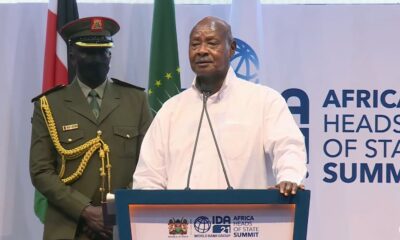

Video: Uganda’s Museveni urges African leaders to verify true motives behind IMF, W’Bank loans
-


This Sudan war is too senseless; time we ended it, By Tee Ngugi
-


Air Peace, capitalism and national interest, By Dakuku Peterside
-


This is chaos, not governance, and we must stop it, By Tee Ngugi
-
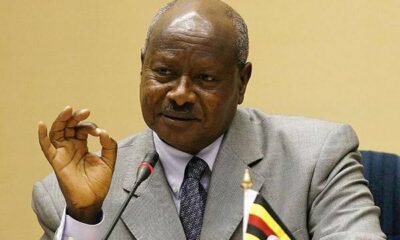

Members of a Ugandan band arrested for complaining President Museveni’s speech too long
-


Ugandan World Cross Country champion Jacob Kiplimo involved in near-fatal accident
Strictly Personal
This Sudan war is too senseless; time we ended it, By Tee Ngugi
Published
5 days agoon
April 28, 2024
Why are the Sudanese Armed Forces (SAF) and the paramilitary Rapid Support Forces (RPF) engaged in a vicious struggle? It is not that they have ideological, religious or cultural differences.
Not that people should fight because of these kinds of differences, but we live in a world where social constructions often lead to war and genocide. It is not that either side is fighting to protect democracy. Both sides were instruments of the rapacious dictatorship of Omar el-Bashir, who was overthrown in 2019.
Both are linked to the massacres in Darfur during Bashir’s rule that led to his indictment by the International Criminal Court for crimes against humanity. They both stood by as ordinary, unarmed people took to the streets and forced the removal of the Bashir regime.
None of these entities now fighting to the last Sudanese citizen has any moral authority or constitutional legitimacy to claim power. They both should have been disbanded or fundamentally reformed after the ouster of Bashir.
The SAF and the RSF are fighting to take over power and resources and continue the repression and plunder of the regime they had supported for so long. And, as you can see from news broadcasts, they are both well-versed in violence and plunder.
Since the fighting began in 2023, both sides have been accused of massacres that have left more than 30,000 people dead. Their fighting has displaced close to 10 million people. Their scramble for power has created Sudan’s worst hunger crisis in decades. Millions of refugees have fled into Chad, Ethiopia and South Sudan.
The three countries are dubious places of refuge. Chad is a poor country because of misrule. It also experiences jihadist violence. Ethiopia is still simmering with tensions after a deadly inter-ethnic war.
And South Sudan has never recovered from a deadly ethnic competition for power and resources. African refugees fleeing to countries from which refugees recently fled or continue to flee sums up Africa’s unending crisis of governance.
Africa will continue to suffer these kinds of power struggles, state failure and breakdown of constitutional order until we take strengthening and depersonalising our institutions as a life and death issue. These institutions anchor constitutional order and democratic process.
Strong independent institutions would ensure the continuity of the constitutional order after the president leaves office. As it is, presidents systematically weaken institutions by putting sycophants and incompetent morons in charge. Thus when he leaves office by way of death, ouster or retirement, there is institutional collapse leading to chaos, power struggles and violence. The African Union pretends crises such as the one in Sudan are unfortunate abnormally. However, they are systemic and predictable. Corrupt dictatorships end in chaos and violence.
Tee Ngugi is a Nairobi-based political commentator.
Strictly Personal
Air Peace, capitalism and national interest, By Dakuku Peterside
Published
2 weeks agoon
April 16, 2024
Nigerian corporate influence and that of the West continue to collide. The rationale is straightforward: whereas corporate activity in Europe and America is part of their larger local and foreign policy engagement, privately owned enterprises in Nigeria or commercial interests are not part of Nigeria’s foreign policy ecosystem, neither is there a strong culture of government support for privately owned enterprises’ expansion locally and internationally.
The relationship between Nigerian businesses and foreign policy is important to the national interest. When backing domestic Nigerian companies to compete on a worldwide scale, the government should see it as a lever to drive foreign policy, and national strategic interest, promote trade, enhance national security considerations, and minimize distortion in the domestic market as the foreign airlines were doing, boost GDP, create employment opportunities, and optimize corporate returns for the firms.
Admitted nations do not always interfere directly in their companies’ business and commercial dealings, and there are always exceptions. I can cite two areas of exception: military sales by companies because of their strategic implications and are, therefore, part of foreign and diplomatic policy and processes. The second is where the products or routes of a company have implications for foreign policy. Air Peace falls into the second category in the Lagos – London route.
Two events demonstrate an emerging trend that, if not checked, will disincentivize Nigerian firms from competing in the global marketplace. There are other notable examples, but I am using these two examples because they are very recent and ongoing, and they are typological representations of the need for Nigerian government backing and support for local companies that are playing in a very competitive international market dominated by big foreign companies whose governments are using all forms of foreign policies and diplomacy to support and sustain.
The first is Air Peace. It is the only Nigerian-owned aviation company playing globally and checkmating the dominance of foreign airlines. The most recent advance is the commencement of flights on the Lagos – London route. In Nigeria, foreign airlines are well-established and accustomed to a lack of rivalry, yet a free-market economy depends on the existence of competition. Nigeria has significantly larger airline profits per passenger than other comparable African nations. Insufficient competition has resulted in high ticket costs and poor service quality. It is precisely this jinx that Air Peace is attempting to break.
On March 30, 2024, Air Peace reciprocated the lopsided Bilateral Air Service Agreement, BASA, between Nigeria and the United Kingdom when the local airline began direct flight operations from Lagos to Gatwick Airport in London. This elicited several reactions from foreign airlines backed by their various sovereigns because of their strategic interest. A critical response is the commencement of a price war. Before the Air Peace entry, the price of international flight tickets on the Lagos-London route had soared to as much as N3.5 million for the economy ticket. However, after Air Peace introduced a return economy class ticket priced at N1.2 million, foreign carriers like British Airways, Virgin Atlantic, and Qatar Airways reduced their fares significantly to remain competitive.
In a price war, there is little the government can do. In an open-market competitive situation such as this, our government must not act in a manner that suggests it is antagonistic to foreign players and competitors. There must be an appearance of a level playing field. However, government owes Air Peace protection against foreign competitors backed by their home governments. This is in the overall interest of the Nigerian consumer of goods and services. Competition history in the airspace works where the Consumer Protection Authority in the host country is active. This is almost absent in Nigeria and it is a reason why foreign airlines have been arbitrary in pricing their tickets. Nigerian consumers are often at the mercy of these foreign firms who lack any vista of patriotism and are more inclined to protect the national interest of their governments and countries.
It would not be too much to expect Nigerian companies playing globally to benefit from the protection of the Nigerian government to limit influence peddling by foreign-owned companies. The success of Air Peace should enable a more competitive and sustainable market, allowing domestic players to grow their network and propel Nigeria to the forefront of international aviation.
The second is Proforce, a Nigerian-owned military hardware manufacturing firm active in Rwanda, Chad, Mali, Ghana, Niger, Burkina Faso, and South Sudan. Despite the growing capacity of Proforce in military hardware manufacturing, Nigeria entered two lopsided arrangements with two UAE firms to supply military equipment worth billions of dollars , respectively. Both deals are backed by the UAE government but executed by UAE firms.
These deals on a more extensive web are not unconnected with UAE’s national strategic interest. In pursuit of its strategic national interest, India is pushing Indian firms to supply military equipment to Nigeria. The Nigerian defence equipment market has seen weaker indigenous competitors driven out due to the combination of local manufacturers’ lack of competitive capacity and government patronage of Asian, European, and US firms in the defence equipment manufacturing sector. This is a misnomer and needs to be corrected.
Not only should our government be the primary customer of this firm if its products meet international standards, but it should also support and protect it from the harsh competitive realities of a challenging but strategic market directly linked to our national military procurement ecosystem. The ability to produce military hardware locally is significant to our defence strategy.
This firm and similar companies playing in this strategic defence area must be considered strategic and have a considerable place in Nigeria’s foreign policy calculations. Protecting Nigeria’s interests is the primary reason for our engagement in global diplomacy. The government must deliberately balance national interest with capacity and competence in military hardware purchases. It will not be too much to ask these foreign firms to partner with local companies so we can embed the technology transfer advantages.
Our government must create an environment that enables our local companies to compete globally and ply their trades in various countries. It should be part of the government’s overall economic, strategic growth agenda to identify areas or sectors in which Nigerian companies have a competitive advantage, especially in the sub-region and across Africa and support the companies in these sectors to advance and grow to dominate in the African region with a view to competing globally. Government support in the form of incentives such as competitive grants ,tax credit for consumers ,low-interest capital, patronage, G2G business, operational support, and diplomatic lobbying, amongst others, will alter the competitive landscape. Governments and key government agencies in the west retain the services of lobbying firms in pursuit of its strategic interest.
Nigerian firms’ competitiveness on a global scale can only be enhanced by the support of the Nigerian government. Foreign policy interests should be a key driver of Nigerian trade agreements. How does the Nigerian government support private companies to grow and compete globally? Is it intentionally mapping out growth areas and creating opportunities for Nigerian firms to maximize their potential? Is the government at the domestic level removing bottlenecks and impediments to private company growth, allowing a level playing field for these companies to compete with international companies?
Why is the government patronising foreign firms against local firms if their products are of similar value? Why are Nigerian consumers left to the hands of international companies in some sectors without the government actively supporting the growth of local firms to compete in those sectors? These questions merit honest answers. Nigerian national interest must be the driving factor for our foreign policies, which must cover the private sector, just as is the case with most developed countries. The new global capitalism is not a product of accident or chance; the government has choreographed and shaped it by using foreign policies to support and protect local firms competing globally. Nigeria must learn to do the same to build a strong economy with more jobs.
EDITOR’S PICK
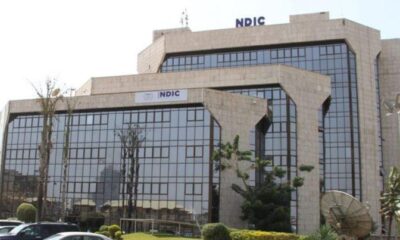

Nigeria’s Insurance Corporation raises maximum deposit coverage from N500k to N5m
The maximum deposit insurance coverage levels for Deposit Money Banks has been raised by the Nigeria Deposit Insurance Corporation (NDIC)...


Zambian activist highlights ongoing threats to media freedom on World Press Freedom Day
As the world commemorates World Press Freedom Day on Friday, a youth activist from the Young Women Christian Association (YWCA)...
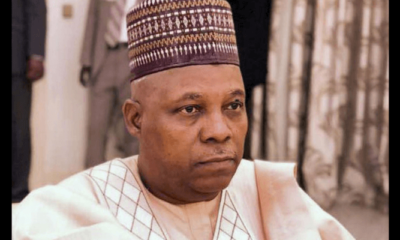

Nigeria’s economy will witness positive changes after painful sacrifice— VP Shettima
Nigeria’s Vice President, Senator Kashim Shettima, has told Nigerians to look at the bigger picture as the country’s economy will...


Nigeria’s food delivery startup Chowdeck raises $2.5m to optimise operations
Nigeria’s on-demand food delivery startup, Chowdeck, has announced securing the sum of $2.5 million in seed funding that will enable...
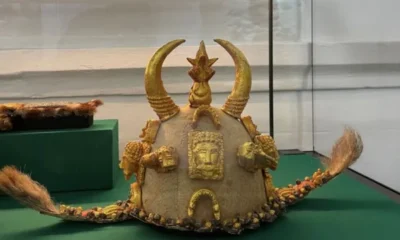

Ghanaians celebrate return of Asante Gold artefacts looted by British
Ghanaians, especially those from the ancient Asante region, have been in joyous mood as they flocked to the Manhyia Palace...
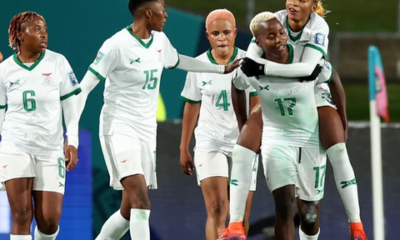

Why Zambia’s women national team could miss Olympics
Zambia’s women national football team is on the verge of missing out on playing at the Paris 2024 Olympic Games....


Religious leader, Luchile, notes improvements in media freedom but faults online media abuse
In this ongoing conversation to amplify voices on media freedoms, freedom of speech, and digital rights, we feature, Maxwell Luchile,...


Video: Uganda’s Museveni urges African leaders to verify true motives behind IMF, W’Bank loans
In this video, Ugandan President, Yoweri Museveni, urged African leaders to verify the true intentions of multilateral lending institutions towards...


Nigerian banks close over two million accounts
At least two million bank accounts have been closed by different commercial banks in Nigeria following the failure of their...


Tanzania’s horticultural industry gets $2.1m grant from TradeMark Africa to boost market expansion
The Tanzanian horticultural industry has recieved a grant of $2.1 million from TradeMark Africa to enable it boost its market...
Trending
-
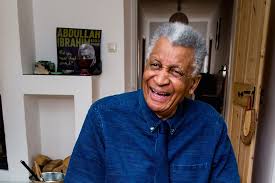
 Culture2 days ago
Culture2 days agoSouth African Jazz great Abdullah Ibrahim to embark on world tour at age 90
-

 Tech2 days ago
Tech2 days agoTanzania’s horticultural industry gets $2.1m grant from TradeMark Africa to boost market expansion
-

 Tech18 hours ago
Tech18 hours agoNigeria’s food delivery startup Chowdeck raises $2.5m to optimise operations
-

 Sports2 days ago
Sports2 days agoKenya unveils ‘killer-squad’ for Paris Olympics marathon Ahead of the 2024 Paris Olympic


